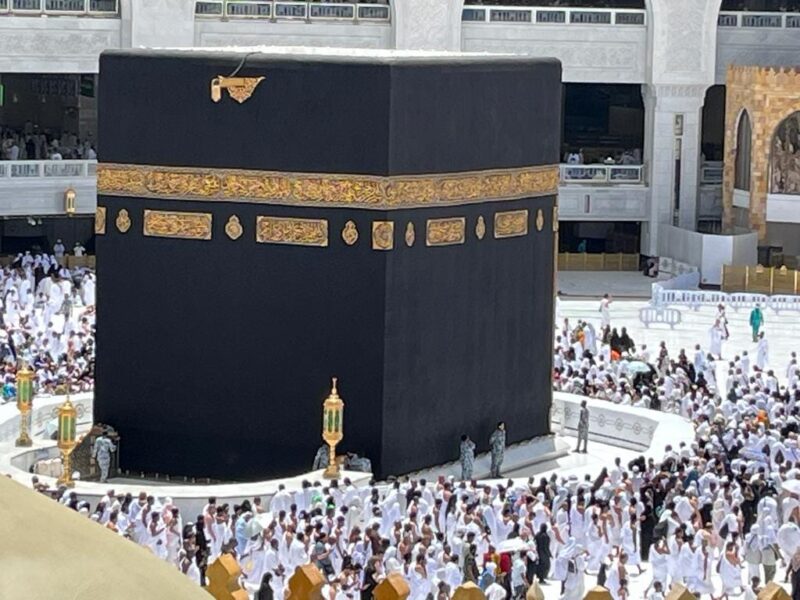Forgotten Dairies
Ramadan: A Month Of Redistribution Of Destiny -By Abdulrofiu Muhammed Temitayo
Laylatul-Qadr offers numerous spiritual, emotional, and psychological benefits, including: forgiveness of sins, rewards better than a thousand months, decree of destiny, increased blessings and rizq (provision), spiritual growth and purification, presence of angels, expiation of sins, strengthening of faith, increased rewards for good deeds and a means of seeking Allah’s mercy.

Ramadan is a month in the Hijri calendar. It is a sacred month imbued with countless worldly and heavenly benefits, with rewards directly from Allah, who promises to reward those who fast. The Prophet Muhammad (S.A.W.) witnessed nine Ramadan years on this earth. Ramadan simply means “the month of fasting.”
Fasting is mandatory for every mentally and physically capable, post-pubescent Muslim who is qualified to fast during Ramadan—except for women undergoing their monthly cycle or postpartum bleeding. Able children should be encouraged to fast to help them develop a strong foundation in their faith as they grow.
Three key elements make Ramadan distinct: the descent of the angel Jibril, the revelation of the Holy Quran, and Laylatul-Qadr (the Night of Majesty). Here, we will focus on Laylatul-Qadr.
Laylatul-Qadr is the most virtuous night of the year, occurring during the last ten nights of Ramadan, with special emphasis on the 27th night. Good deeds performed on this night are more rewarding than those done over a thousand months (about 83 years). One of its observable signs is a whitish or pale dawn without much brightness from the sun, along with moderate weather. A Muslim may pass by this night without realizing it, which is why it is encouraged to increase worship, particularly in the last ten nights of Ramadan, to avoid missing its blessings.
One of the most remarkable aspects of Laylatul-Qadr is the redistribution of destiny, where Allah Almighty amends the fate of individuals who sincerely seek His forgiveness and mercy.
Laylatul-Qadr, also known as the Night of Power or the Night of Destiny, is regarded as the holiest night of the year. It is believed to be the night when Allah revealed the Quran to the Prophet Muhammad (peace be upon him). Allah says in the Quran:
Indeed, We sent it (i.e., the Quran) down during the Night of Majesty (Laylatul-Qadr). And what can make you know what the Night of Majesty is? The Night of Majesty is better than a thousand months.” (Quran 97:1-3)
The Prophet Muhammad (peace be upon him) said: “Whoever stands in prayer on Laylatul-Qadr with faith and seeking reward will be forgiven for his previous sins.” (Bukhari and Muslim)
Laylatul-Qadr offers numerous spiritual, emotional, and psychological benefits, including: forgiveness of sins, rewards better than a thousand months, decree of destiny, increased blessings and rizq (provision), spiritual growth and purification, presence of angels, expiation of sins, strengthening of faith, increased rewards for good deeds and a means of seeking Allah’s mercy.
Muslims are encouraged to observe Laylatul-Qadr by performing i’tikaf (seclusion in the mosque), reciting the Quran, performing Tahajjud (night prayers), seeking forgiveness, making dua (supplications), engaging in charitable acts, and remaining consistent in worship and devotion.
In Islam, the concept of destiny (qadar) is comprehensive and multidimensional. While Allah has decreed the fate of all creation, humans have been given free will to make choices that can influence their destiny. The Quran and Hadith provide insights into the redistribution of destinies—where Allah can change an individual’s fate based on their deeds, obedience, and gratitude, turning bad into good or good into bad. Conversely, disobedience and ingratitude can shift destiny from good to bad.
May Allah accept our fasts, guide us in seeking the Night of Majesty, and grant us the blessings of Laylatul-Qadr.
Ramadan Mubarak!
Temitayo writes from Benin City, Edo State and can be reached at muhtay99@gmail.com

























